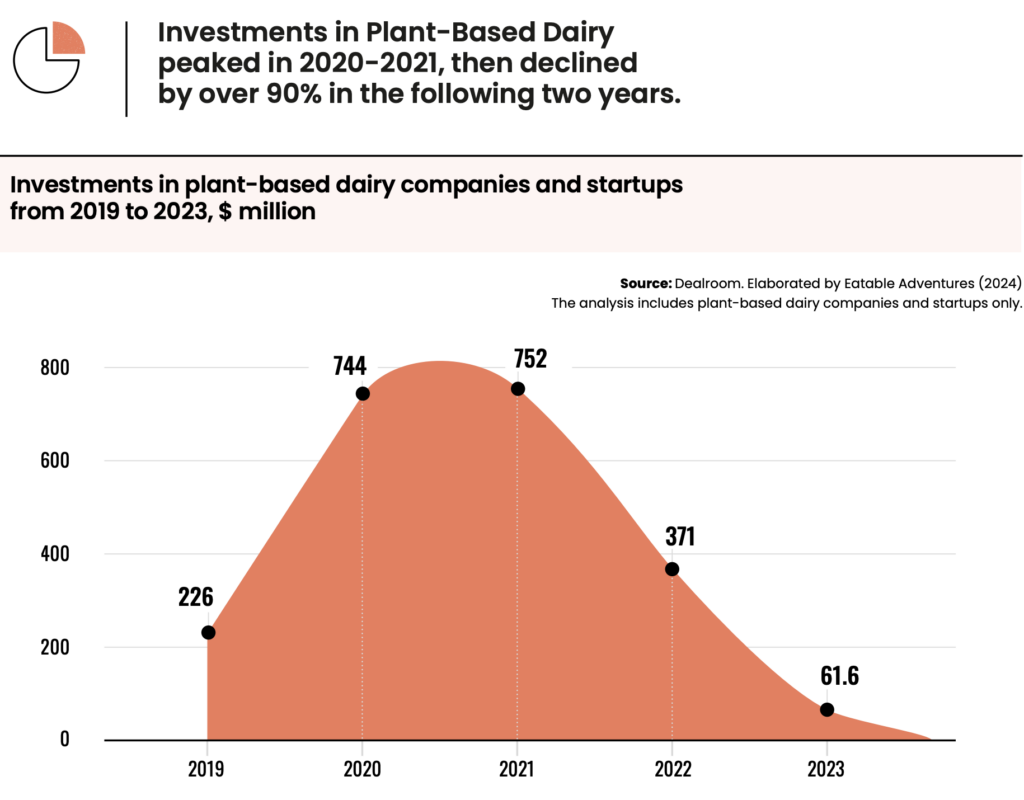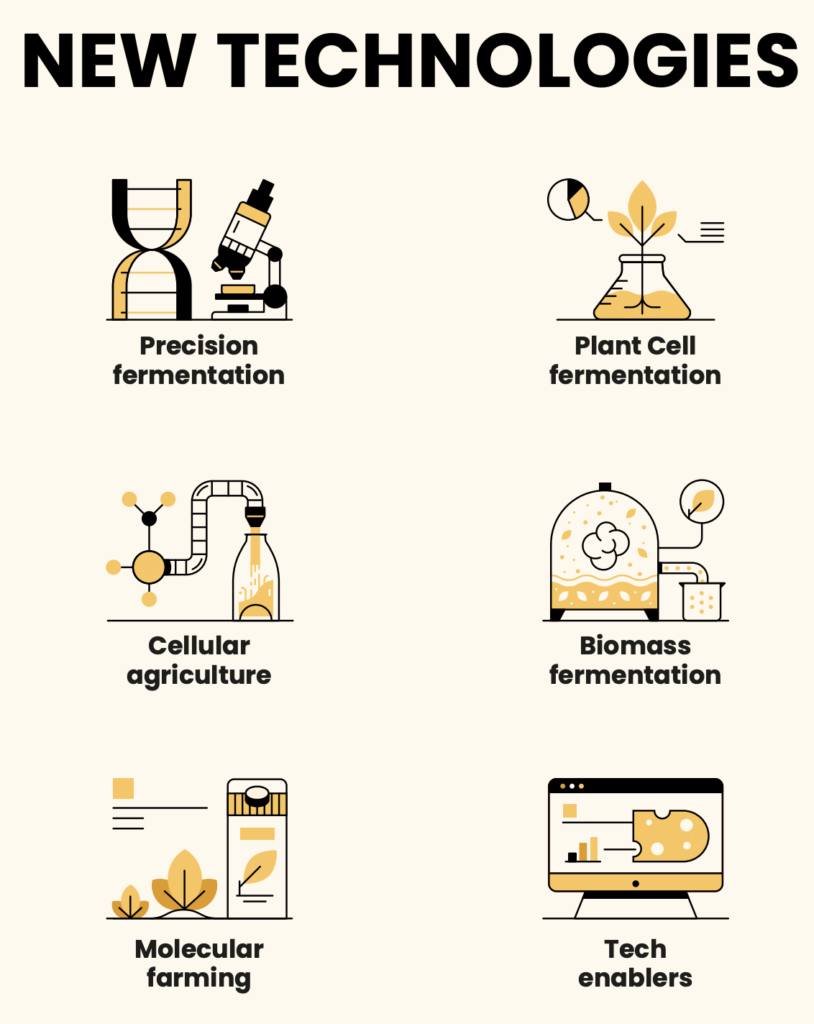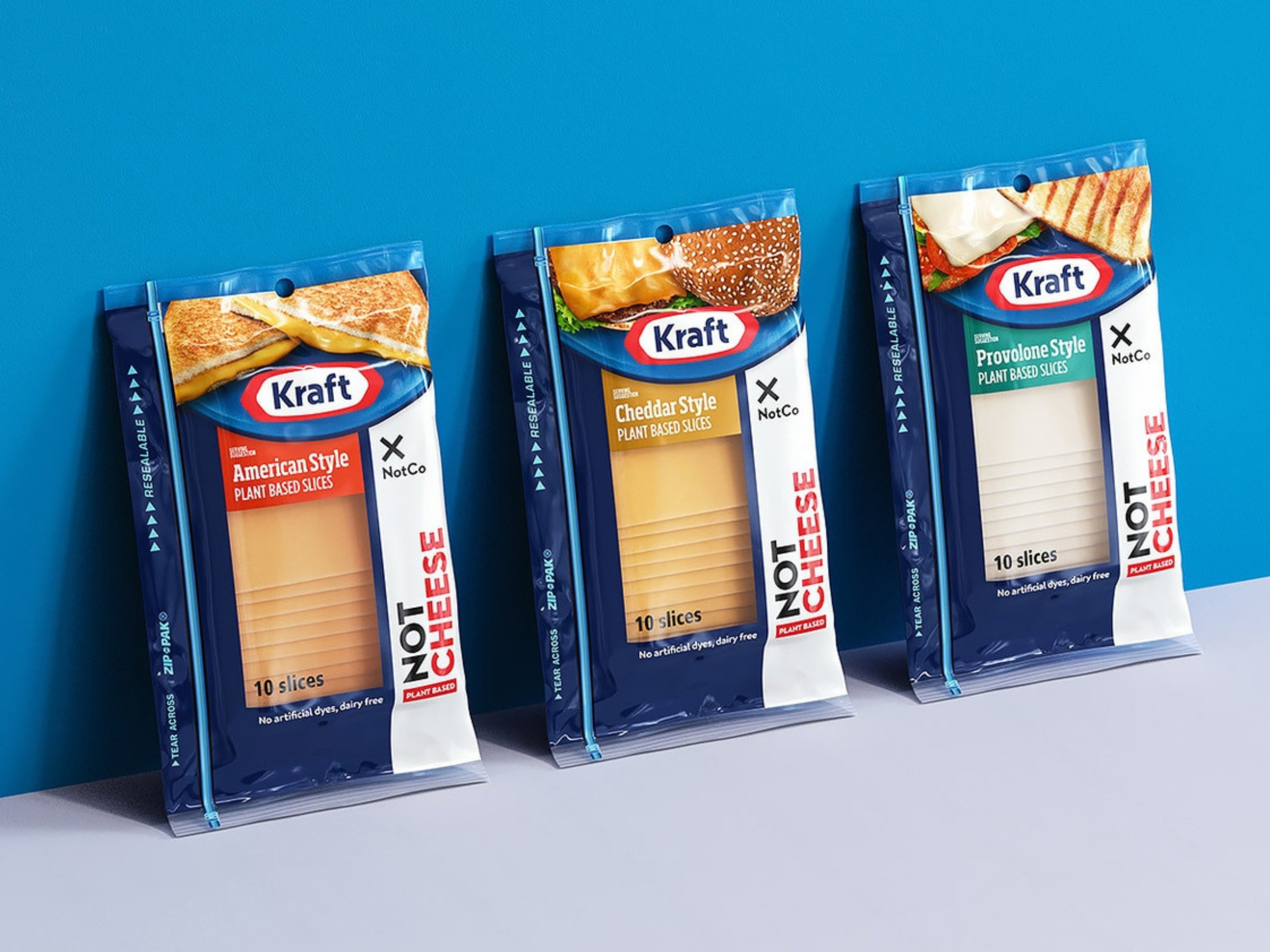The Future of Dairy: Are Alternative Protein Startups the Solution to Big Dairy’s Problems?
5 Mins Read
A new report looks at the challenges facing dairy and its more planet-friendly alternatives, and how collaborations between them can shape the future of dairy.
Globally, dairy might be a $944B market, but it is facing growing pains in the form of labour shortages, price hikes, and its environmental impact. The future is uncertain, and animal-free versions of dairy may just be the saviour for the industry, according to a new report by Eatable Adventures.
The Madrid-based food tech accelerator has released The Future of Dairy, a new analysis of the dairy industry’s biggest challenges, and how plant-based analogues, fermentation, cellular agriculture and molecular farming can help turn things around for the sector.
The dairy industry emits 4% of the world’s emissions, about twice as high as the entire aviation sector. The climate change it is causing is also having an impact on the milk sector itself, whether that’s in terms of yield, quality or price – between March 2023 and 2024, dairy prices rose by 8.2%.
That said, future-facing alt-dairy startups have their own struggles, from capacity bottlenecks and high prices to slowing investment and regulatory roadblocks. But technology is the industry’s future, and collaboration between high-tech startups and established dairy corporations is the way forward, the report suggested.
“These partnerships enable startups to scale faster while providing corporations with efficient access to new technologies,” explained Eatable Adventures founder and CEO José Luis Cabañero. “Success in the sector depends on the ability to scale emerging technologies, achieve price parity, and meet evolving market demands.”
Big Dairy is under threat – alternative protein startups can help

The report includes insights from key industry stakeholders, and found some key challenges for the dairy industry. Consumer perceptions of negative health effects have intensified just as they look for white-label dairy products, decarbonising the sector and adapting to climate change are big question marks, and increased competition is pushing companies to diversify and differentiate themselves.
Despite these threats, though, the dairy industry remains divided on the adoption of new technologies to create alt-dairy products – some view these as limited to the research labs, while others are willing to adopt them as a source of diversification. Any costs or burdens passed on to the consumer will also be a challenge.
The stakeholders in favour of embracing these technologies are driven by people’s demand for sustainability and transparency, the enhanced nutritional functions of dairy analogues, better efficiency and lower operational costs, and higher profit margins.
Those against them, however, are unsure of the technological viability of scaling up, and feel they can’t justify the financial outlays. They’re also concerned about consumer acceptance and overcoming cultural barriers, and cite regulatory constraints as another key hurdle.
This is why plant-based dairy – supercharged by AI and machine learning tools – is likely to be adopted by the conventional dairy industry in the near term (one to three years). An example of this is Kraft Heinz’s ongoing partnership with Chilean food tech company NotCo. The interviewees anticipate precision fermentation to be adopted in three to five years, but cell-based dairy isn’t expected to penetrate this sector for another decade.
Eatable Adventures noted that investments in alternative dairy companies have dropped by over 90% since the highs of 2021, and that the US accounts for nearly a third (30%) of all startups in the space, followed by Israel (14%).
To advance the overall dairy industry, the report explored the role of open innovation, highlighting the importance of collaborating with universities and research centres to tap into external knowledge in a cost-effective manner. But aligning the interests of corporations and startups is no mean feat, especially due to the contrast in organisational culture, scale, and timelines for development and market entry.
“When you begin, managing your expectations is necessary,” said one industry insider. “Avoid placing excessive pressure on startups. Do not expect the startup to single-handedly solve the problem. Patience is vital. With the company’s support, the startup could potentially resolve the issue. It’s a collaborative effort. In innovation, patience is key to preventing failure.”
A pitch for a tech-forward dairy sector

Eatable Adventures believes technology is the “new frontier of dairy competitiveness”, posing as a key differentiator between companies and helping democratise pricing in the sector.
One way to approach and embrace novel technologies is via the development of hybrid products, much like Kerry’s Smug Dairy, which blends cow’s milk with oats. This reduces production costs and emissions, and can enhance the nutritional value of plant-based dairy, but this approach requires strong industry support to work.
Upcycling is another innovative solution. Turning byproducts like oatmeal and soy into valuable dairy resources can offer sustainability and economic benefits. Circular waste solutions allow companies to generate direct revenue and improve the health attributes of both plant-based and hybrid offerings.
Adapting robotics, blockchain technology and AI can revolutionise the sector too, creating new business models while necessitating advanced knowledge. “Early adopters will have the tools to overcome the future challenges, towards a more efficient and sustainable industry,” the report said.
Ultimately, the future of dairy relies upon meeting consumer demand, developing new products, creating hybrid solutions, and strategically incorporating new technologies. So early access to new technologies and business models is crucial, as is collaboration between startups and corporations.
“Industry leaders must actively shape the future rather than merely observe it,” said Cabañero. “We call on all stakeholders involved in this transformation to adopt forward-thinking practices and integrate cutting-edge technologies that enhance sustainability and efficiency.”
The report’s advice for the dairy and alt-dairy sectors? “Invest in research and development, collaborate with tech startups, and stay ahead of regulatory changes to meet and exceed the expectations of tomorrow’s consumers.”



